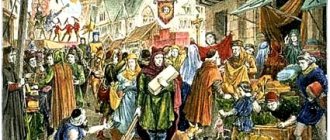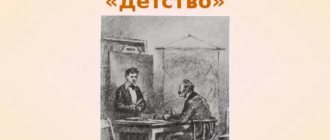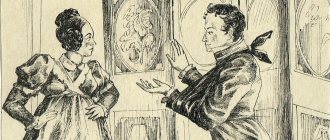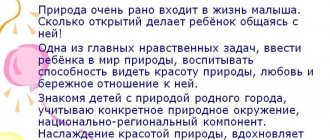- Essays
- 9th grade OGE
- Arguments and examples of humanity from literature
Humanity is our main quality, which allows us to remain human. Without humanity, human relations, it is unknown what would become of us. Humanity or humaneness implies sympathy for people, acceptance of them as they are. Therefore, many authors decided to express the need to demonstrate this quality in their works. In particular, most works of classical literature are endowed with the theme of sympathy for people. Now let's look at these examples from the literature.
Platonov tells us about the importance of showing humanity in his work “Yushka”. The main character took into care of an orphan child. He saved all the money to help her, pay for her education. He did not have the means to rent a house or buy clothes. But this did not affect his quality in any way. He accepted any person, gave those around him the opportunity to speak out and take out all their anger on him. After his death, it turned out that he had a daughter and after that the neighbors realized that they had been unfair to Yushka. His role in this village was very important.
The next work worth mentioning is “The Fate of Man” by Sholokhov. Andrei Sokolov is a participant in the war. But, despite the cruelty of events, he does not forget about kindness. After losing his family, he adopts a child and begins to care for him. He remains a kind and compassionate person. Starts a new life and believes in a bright future. \
The work “The Wonderful Doctor” by Kuprin is one of the best works that teaches us compassion. The main character is a prototype of the doctor Pirogov. The main character helped a poor family without demanding anything from them. Such a wonderful doctor made it possible for these people to buy medicine and food. The hero saves people from starvation. Shows humanity and mercy.
Natasha Rostova is a heroine who grew up in a family that has been accustomed to kindness and mercy since childhood. During a fire in Moscow, Natasha, sacrificing her jewelry and accumulated property, helps the wounded. Selfless help, kindness and compassion are inherent in her character. She helped dozens of people survive this moment.
When you analyze these examples from literature, you can conclude that humanity must always be preserved, regardless of any circumstances. The main quality that makes us human is compassion. People should remember this and show more kindness. So what is humanity? This is the ability to appreciate each person, show empathy and compassion.
Wonderful doctor
An example of humanity is the action of the protagonist of the story “The Wonderful Doctor.” A.I. Kuprin embodied the best human qualities in the image of Professor Pirogov. Having accidentally met the desperate Mertsalov in the city garden, the doctor becomes a real salvation for his entire family. After listening to the life story of a new acquaintance, Pirogov took an active part in his fate. Only thanks to his intervention did the Mertsalovs’ position begin to stabilize. The doctor turned out to be truly wonderful. He not only provided professional medical assistance, but also helped with money, since the family was in extreme distress.
Collection of ideal social studies essays
(1) There was a war going on, which we, sixteen-year-old boys, had not yet experienced. (2) It was a hungry time. (3) With student cards we were given only four hundred grams of bread.
(4) Meanwhile, even butter, ham, eggs, sour cream existed in our dorm room - in the bedside table of Mishka Eliseev, whose father worked in a warehouse and every Sunday came to his son and brought fresh, plentiful food.
(5) There was a lock on Mishka’s bedside table. (6) We didn’t even approach it: the inviolability of someone else’s castle has been developed by man for centuries and has been sacred at all times, excluding social cataclysms - spontaneous riots or natural revolutions.
(7) One winter we had two days off, and I decided that I would go to my village and bring a loaf of black bread. (8) The guys tried to dissuade me: it’s far away - forty-five kilometers, it’s cold outside and a snowstorm is possible. (9) But I set myself the task of bringing bread to the guys.
(10) In the morning, despite the blizzard, I made it to my parents’ house. (11) After spending the night and putting the precious loaf in my backpack, I went back to my friends in the cold, hungry hostel.
(12) I must have caught a cold, and now the illness was beginning. (13) I was overcome by incredible weakness, and, having walked twenty-five kilometers in the cold, I raised my hand to a passing truck.
- (14) Do you have alcohol, tobacco, lard? - the driver asked menacingly. - (15) Eh, why talk to you!
- (16) Uncle, don’t leave! (17) I have bread.
(18) I took a large, heavy loaf out of the bag in the hope that the driver would cut off a part and take it to Vladimir for it. (19) But the entire loaf disappeared in the cab of the truck. (20) Apparently, the disease had a strong grip on me, if even the very disappearance of the loaf, for the sake of which I endured such torment, was no longer important to me.
(21) Arriving at the hostel, I undressed, climbed into the icy interior of the bed and asked my friends to bring boiling water.
- (22) What about the boiling water?.. (23) Didn’t you really bring anything from home?
(24) I told them how it happened.
— (25) Wasn’t that driver similar to our Mishka Eliseev? - asked Volodka Ponomarev.
“(26) I was,” I was surprised, remembering the round red mug of the driver with small gray eyes.
- (27) How did you find out?
- (28) Yes, all grabbers and greedy people must be similar to each other!
(29) Then Mishka appeared in the room, and the guys, unable to bear it, turned to him for the first time with a request.
(Z0) You see, a man has fallen ill. (31) I would at least give him something to eat.
(32) No one expected Mishka to explode in this way: he suddenly started yelling, stepping on one, then the other.
- (ZZ) Look, how clever they are at looking into someone else’s bag! (34) I don’t have anything in my nightstand, you can check it. (35) Allowed.
(36) At the same time, he managed to cast a sly glance at his heavy lock.
(37) The onset of illness, terrible fatigue, the compassion my mother put into the only loaf of bread, the unceremoniousness with which this loaf was taken from me, the grief that I didn’t bring it, the children’s concern, Mishka’s shameless lie - all of this suddenly began to slowly swirl inside me how the July thundercloud swirls, becoming darker and more terrible. (38) The clouds grew, expanded, obscured the eyes and suddenly hit the brain from below with a dark wave.
(39) They told me later that I calmly took the stick that we used to smash discarded bedside tables in order to burn them in the stove and keep warm, and moved towards the bedside table with a lock. (40) I raised the stick once and twice, and now the hidden insides of the “barn” were exposed: a glass jar with butter rolled, white-white sugar scattered into pieces, larger and smaller packages flew in different directions, and at the bottom under the packages appeared bread.
In bad company
Another example of humanity is the boy Vasya from the story “In a Bad Society” by V. G. Korolenko. Vasya is the son of a lawyer. The boy lives in prosperity, but does not know the affection of his father, who is very worried about the death of his wife. Vasya is in great pain and seeks consolation on the street. Having met Valek and Marusya, the boy begins to wonder why some children live in abundance, while others eke out a miserable existence. Little Marusya’s illness shocked Vasya. He really wants to help his new friends! He dreams of seeing a smile on the sick girl's face. He manages to do this. The sister’s doll, which Vasya begged from Sonya, worked a miracle. Marusya is truly happy. And although death did not spare her, Marusya dies having known joy.
Sometimes it is enough to do simple things to save a life or try to fight for it.
Popular writings
- Essay Professor Preobrazhensky in the story Heart of a Dog by Bulgakov (image and characterization)
Philip Philipovich Preobrazhensky is one of the main characters in Mikhail Bulgakov’s story “Heart of a Dog.” This is a famous scientist, an intelligent person who has achieved great success - Going to the Movies - essay
Once my friend invited me to a movie show. He called me and said that the premiere of the foreign film “The Avengers” would take place this Friday. We agreed to meet him in advance in the center - Lyapkin-Tyapkin from the comedy The Inspector General (Image and Characteristics)
Nikolai Vasilyevich Gogol’s comedy “The Inspector General” presents images of bureaucratic officials of a small county town. The author ironically ridicules the vices of officials who literally
Russian prose
The most worthy evidence for the OGE in the Russian language is considered to be from the literature.
The manifestation of humanity is a common phenomenon in Russian journalism and its illustrations are found in the overwhelming majority of works from the school curriculum.
- In the novel “The Master and Margarita” by M. A. Bulgakov, Margarita ended Frida’s suffering by asking her no longer to give her a scarf that reminded the sinner of the baby she killed. Margarita Nikolaevna could not have done this and fulfilled her desire, but compassion and a feeling of pity for Frida did not allow her to do so.
- A striking example of the manifestation of philanthropy is presented in the story by V. G. Rasputin “French Lessons”. Lydia Mikhailovna, having learned about the poor and hungry existence of a student from her class, tried in every possible way to help him. When the boy refused financial assistance, she came up with a way to make sure that he did not reject her support. The teacher not only wanted to help, but also accepted the protagonist’s position about money and respected his opinion and principles.
- In F. M. Dostoevsky’s work “Crime and Punishment,” Sonechka Marmeladova went to the panel so that the family would have money for food. By sacrificing her body, she ensured the existence of her relatives. Her compassion and pity are a good illustration of her sincerity and love for her neighbor.
- Another example of mercy is Vasya from V. G. Korolenko’s story “Children of the Dungeon,” who was imbued with compassion for new friends: the poor children Valek and Marusa. Trying to somehow help the dying little girl, he exchanged a doll from his sister and gave it to Marusya. The toy made her last days happier and happier.
- Romashov from the story “The Duel” by A.I. Kuprin acted nobly, refusing to shoot Shurochka’s husband at her request. He understood what it would be like for a woman to lose her husband, and he sacrificed his pride and honor so as not to bring pain to his beloved. This decision led to the death of Romashov, but his actions were characterized by dedication and sacrifice towards Shurochka.
- In the story “Yushka” by A.P. Platonov, the main character, who was belittled for his unsightly appearance and dirty clothes, saved money for the education of an orphan. The holy fool Yushka sacrificed his well-being for the sake of the girl, trying to make her dreams come true.
- A. Belyaev’s science fiction novel “Amphibian Man” tells about a talented scientist who was ahead of his time. Salvator saved the life of little Ichthyander with his scientific development, transplanting shark gills into him. The man not only extended the boy’s days, but also raised him as his own son.
Works of M. Gorky
The writer's texts are rich in various problems. Despite the common theme of “humanity,” its manifestation in the stories occurs in different ways and each text can be used in an essay as an independent argument:
- In the play “At the Bottom,” Luka treats the lives of other people with pity and understanding, telling them what they want to hear. He is sure that a sweet lie is better than the bitter truth, and gives the inhabitants of the shelter hope and a reason to live. This position is explained by the desire to understand and feel the grief of another person.
- The hero of the story “Old Woman Izergil” is Danko, a young man who did not spare himself to save people. By tearing out his heart, he lit the path to freedom from the forest. Such an artistic image of dedication and selflessness is the highest manifestation of humanism.
- An ambiguous story about a thief who hired a local hard worker as his accomplice and decided to do business with him is told in the book “Chelkash”. When the accomplices managed to get a decent amount, greed flares up in Gavril and he tries to kill the main character. Seeing what is happening to the peasant, Chelkash gives up the loot, not understanding how, for the sake of pieces of paper and coins, one can take a person’s life and stoop to such baseness. Although Chelkash is a thief, there was more humanity and nobility in him than in an honest worker.
Works by I. A Turgenev
In Turgenev's work, man and his life are the central element of the narrative, so his stories often contain colorful examples of compassion and humanity. His stories are relatively short, and the characters are bright and colorful, making them easy to remember .
- Gerasim from the work “Mumu” stands up for the washerwoman Tatyana, not allowing her to be ridiculed, and during one of his walks he picks up a small dog and subsequently takes care of it.
- In the novel “On the Eve”, Elena Stakhova helped the poor, the weak and the needy from childhood. The girl’s relatives did not approve of these aspirations, which were not suitable for the origin and status of the family, but she still continued to support those in need in every possible way.
- In the story “Asya,” Gagin sincerely worries and cares about his adopted sister. He thinks about the girl’s feelings, tries to make her life comfortable and calm. When Asya falls in love with N.N., Gagin understands that a union is impossible and asks N.N. to talk to her sister and explain everything, thereby reducing her suffering from the torments of love.
Military texts
A separate block contains examples related to military events. Manifestations of human feelings in conditions of death and cruelty look more convincing than those described in peacetime .
- In V. Kondratyev’s story “Sashka,” the main character refuses to follow the order of his superiors and shoot the German. Sashka imagined himself in the place of a prisoner, and realized that he would have acted exactly the same: he did not give out information to the enemy and did not ask for mercy. The ability to look at the world through the eyes of another, to feel his fear, is a manifestation of humanism.
- Another work about the difficult military life of V. A. Zakrutkin, “Mother of Man,” reveals that it is possible to preserve humanity even in such unbearable conditions. Maria picks up a wounded enemy and thereby saves him. She saw in him a simple guy who did not want to kill and became a victim of an oppressive government.
- Natasha Rostova from L.N. Tolstov’s epic novel “War and Peace” helps the wounded and parts with her dowry, refusing to leave with her family for evacuation. The Rostov house becomes a refuge for wounded soldiers. Natasha shows sensitivity to the suffering of others, which has saved many lives.
- In the literary work of N.V. Gogol “Taras Bulba”, the old ataman, sentenced to death, showed the path of escape from enemies to his comrades. Dying in terrible agony, the defeated Taras saved the lives of his subordinates, thinking about the army to the last.
- A. Solzhenitsyn’s short story “One Day in the Life of Ivan Denisovich” tells about the difficult life of a concentration camp during the Soviet wartime. Ivan Denisovich retained his humanity in the difficult conditions of forced life, unlike Fetyukov, a completely degraded and deteriorated person. The author, through the characters, notices the importance of preserving the human form not only from moral convictions, but also simply because it will not be possible to survive in the camp any other way.
Arguments to the contrary
In addition to standard arguments, anti-arguments are often used. They show examples of reverse events and phenomena, which illustrate the cruel, soulless attitude of people towards the world, and reveal the consequences of the disappearance of the soul in a person .
- In A. N. Ostrovsky’s play “The Thunderstorm,” Kabanikha’s tyranny and inhumane treatment drove Katerina to suicide, and Tikhon was forced to speak out against his mother. Lack of sympathy and understanding led the Kabanikha family to such a tragic end.
- In I. A. Bunin’s story “Mr. from San Francisco,” the author reveals in detail a society devoid of philanthropy and a sense of humanity towards each other. The death of the Master from San Francisco is perceived by the hotel owner and guests as something disgusting and inconvenient. Lack of compassion can create such a callous and dead society.
- Oscar Wilde's novel The Picture of Dorian Gray shows an inhuman hero who exchanged his soul for eternal youth. Deprived of kindness and compassion, Dorian Gray transformed into a selfish and ugly man who does not know how to understand others. The proud man was left alone with his demons and saw what a monster he had become, having rejected his soul.






